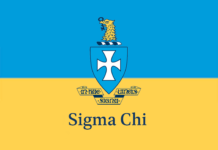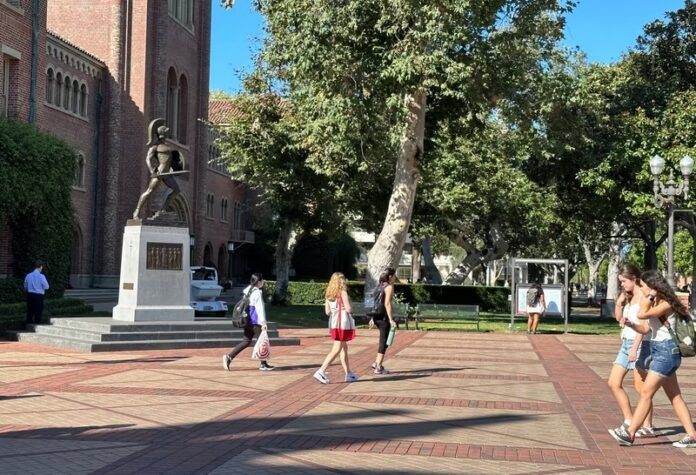The university is holding several events this week to promote awareness about hazing in student organizations.
Following several cases of hazing violations from student organizations in recent years, USC is hosting a series of events between September 25 and September 29 to recognize National Hazing Prevention Week.
On Monday, USC Hazing Prevention and Leadership coordinator Ashley Westbrooks hosted a workshop in the Ronald Tutor Campus Center (TCC) on how to recognize and report hazing.
“I think the most common misconception is that hazing only happens in fraternities and sororities,” Westbrooks said. “And so through the events that we have throughout the year, as well as here in Hazing Prevention Week, it’s just to let students know that it happens in all settings.”
Westbrooks also encouraged students to sign the Anti-Hazing Pledge, a commitment to not engage in hazing activity.
Aside from Monday’s event, USC will host more events relating to National Hazing Prevention Week in TCC this week. On Tuesday, the Relationship and Sexual Violence Prevention and Services (RSVP) office will host a workshop on Bystander Intervention. On Wednesday, Hazing Prevention at USC will teach attendees about the different resources to report hazing on campus. There will also be a session on how to build a healthy culture in clubs.
Additionally, there will be two tabling events at Hahn Plaza — one on Tuesday from 12:00 p.m. to 2:00 p.m. and another on Friday from 2:30 p.m. to 5:00 p.m. The occasions will feature anti-hazing education and resources from Campus Activities.
The Hazing Prevention Network, an international nonprofit organization, established National Hazing Prevention Week in 2007 as a way to raise awareness for an issue that has resulted in at least 50 documented student deaths since 2000.
{…}
The USC Student Handbook identifies activities such as forced strenuous physical activity, sleep or meal deprivation, forced creation of digital content and acts of psychological harm as hazing.
The university provides education modules for hazing prevention through Prevent Zone by Alive Tek. The modules are a mandatory requirement for students planning to join a fraternity or sorority, as well as for officers of recognized student organizations, but are not required for every enrolled student as mandatory Safety & Wellness online courses.
Students who have taken the Prevent Zone modules have had varying experiences with them.
“Even being in Marshall, I think I’ve had to take some modules,” said Ethan Hoffman, a junior studying business administration. “I think they did a really good job of representing where USC is at as far as their stance on it. But as far as retention, I think that it wasn’t incredible.”
Adelyn Ledbetter, a sophomore studying English and human biology, also commented on the effectiveness of the education modules.
“I’m in a club, Collegiate Sales Society, and they make sure that we do hazing prevention modules,” Ledbetter said. “I guess they’re helpful for people that maybe had never heard of hazing before. But if you have, it didn’t really offer anything insightful. And I have no recollection of what I’m supposed to do if I get hazed in that situation, which is, I think, the whole point of the modules.”






















